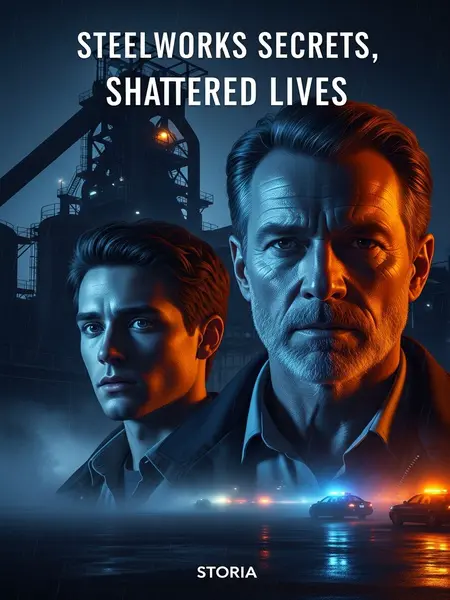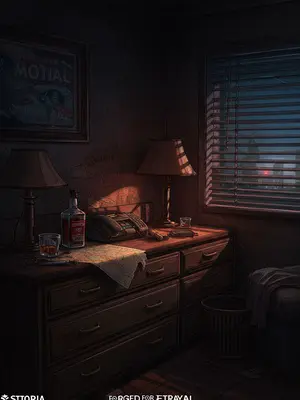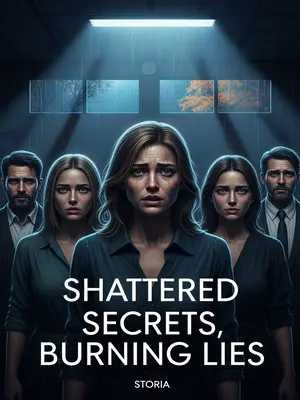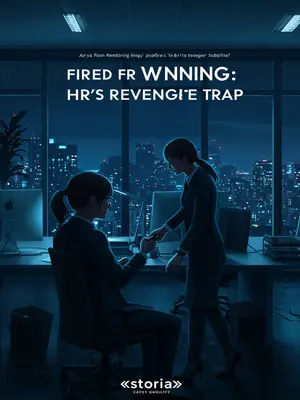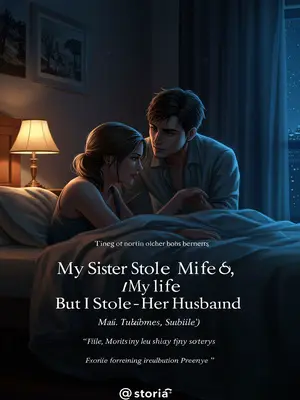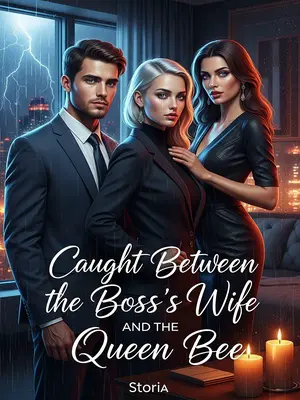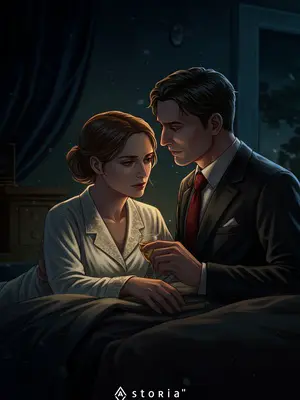Chapter 5: Inheritance of Vengeance
He was so furious, I couldn’t even answer. I knew he was wrong, but the words stuck in my throat.
But I stood my ground. Maybe for the first time, I got what Brian meant about fate forcing your hand. I slammed my badge on the chief’s desk and stripped off my uniform.
I’m not cut out for this. I don’t know how to keep order if this is what it means.
“Callahan...” The chief’s face went purple, jaw clenched, but he couldn’t get the words out.
I just smiled at him. “Cop or not, I’ll find the truth. Maybe the world’s got its share of wronged souls, but not in any case I handle.”
I thought I was a hero. But the next day, my mom dragged me back to the station to beg the chief. She shoved me in front of him, slapping me and crying. “He’s just a kid, doesn’t know better. Please, give him another chance.”
“My daughter and son-in-law have been out of work for years. They break their backs every day, barely scraping by. The whole family—old and young—waits for him to bring home a paycheck.”
“My daughter-in-law just had a baby. My son lays bricks, works himself raw, but there’s hardly any work.”
“His father and I are old, can’t work anymore.”
“We have nothing but a few rooms to our name.”
“He’s not even married yet, just got engaged. If he loses his job now, what’ll we do?”
She pushed me again. “Say you’re sorry, beg your boss, admit you screwed up.”
Everyone in the station just stared while I stood there, frozen. My mom smacked me again. “Can’t you get it together? Can’t you see what’s riding on you? If you lose this job, you’ll never get married, and we’ll all be sunk.”
Finally, she dropped to her knees in front of the chief. No one in the room could bring themselves to lift her up. Only me—by bowing my head, giving in, apologizing—could fix it.
I bent and said, “Chief, I was wrong.”
I knelt to my mom. “Mom, I was wrong.”
I bowed deep. “Sorry. I was wrong.”
I didn’t even know what I’d done wrong, but seeing my white-haired mom swallow her pride for me—I must’ve messed up somewhere, whatever it was.
In the end, the chief sent me to manage files. My pay got cut, but at least I had a paycheck.
One day, I saw the case file. The closing statement was already signed—by Tyler. He looked at me, sheepish. “Cap, sorry. Sometimes you gotta survive before you can do the job.”
Those were my best years—youth, ambition, all that. Life knocked me down, but deep inside, I was still pissed off. I kept the anger, hoping I’d get my shot again someday. I waited. I hoped.
Finally, a letter came from D.C. I tore it open, praying for answers. But all it said was: Sorry! Too much time had passed, no DNA could be pulled from the semen. No comparison possible.
That was it. I just crumpled. I gave up.
I boxed up all the case files, labeled it “Riverbend Steelworks Dancer Case,” shelved it, and never opened it again.
I settled into the file room, did what my parents wanted, got married, had kids, scraped by on my salary, and like every other guy in town, did what I could for my family.
Those were Riverbend’s hardest years. With the steelworks gone, not just the workers, but everyone who depended on it was out of luck. Young folks left town in droves. Kids were left behind, and old folks who should’ve been taking it easy had to keep hustling just to eat.
In the file room, I saw mostly theft and robbery cases. Those half-grown kids, with no parents or guidance, drifted into trouble. Some just kept getting picked up—caught, sent home, caught again, back in the system.
I wondered why they couldn’t find something better as they got older. Then I figured it out: to them, it was a job. Some cops, looking to pad their numbers, trained those boys to steal, made it their work. Not only did they avoid jail, they got a cut of the take.
So Tyler became Captain Chen, then Chief Chen. And I stayed in the file room, nearly invisible at work, and at home, my wife let me know exactly what she thought of that.
The only bright spot was my son. He’d tell his buddies, “My dad’s a cop!” with this big grin, like I was somebody special.
I figured that was it—my life, day after day. No one expected that, twenty years later, the same case would rear its ugly head. A woman, beaten to hell before she died, stripped after, crime scene spotless. Only difference: this time, there was no man between her legs—just a wooden stick.
The internet went wild. People talked about the stick—like a rolling pin—saying it showed the killer’s twisted mind. Whoever did this knew their way around a crime scene—wiped everything clean.
Chief Chen came to me, looking lost. “He was so careful, he wouldn’t even risk leaving semen—so he used a stick.”
We dug up the old “Riverbend Steelworks Dancer Case” files and found some witness statements.
“Heath Jennings, yeah, that’s Heath Jennings. The victim, Hannah Jennings, was his daughter.”
Chief Chen wondered, “Cap, could he be the real killer from back then?”
It was possible. But if the killer wanted revenge, why go after the daughter of a witness?
“Doesn’t matter if he’s the old killer or not, it’s definitely tied to the dancer case.”
We wanted to reopen the case, but we couldn’t do it ourselves—especially not Chief Chen, who’d signed off on it years ago.
So we handed it to the younger officers.
There was a sharp kid at the station, Hunter Byers. Young, but already a legend—he’d cracked some big cases. He’d worked at the state bureau, but after an arrest went sideways and he crippled a suspect, he got shipped out here.
Word was, at a briefing, he zeroed in on the old case right away—suggested checking old files for similar M.O.s. Serial crime, he said.
So Chief Chen handed him the case, with Jack Newton as his backup.
Jack was my apprentice. When he first showed up, he was all skin and bones, stuck in the file room with me. I figured he’d quit, but he surprised me—patient as a saint.
With him around, I started to believe file work mattered. He told me, “Archiving isn’t just the last step of a case—it’s the first step to making things right. Because of archives, the wronged can be heard. File managers matter.”
I started to perk up, too. The file room, once a dust trap, was spotless after Jack arrived.
